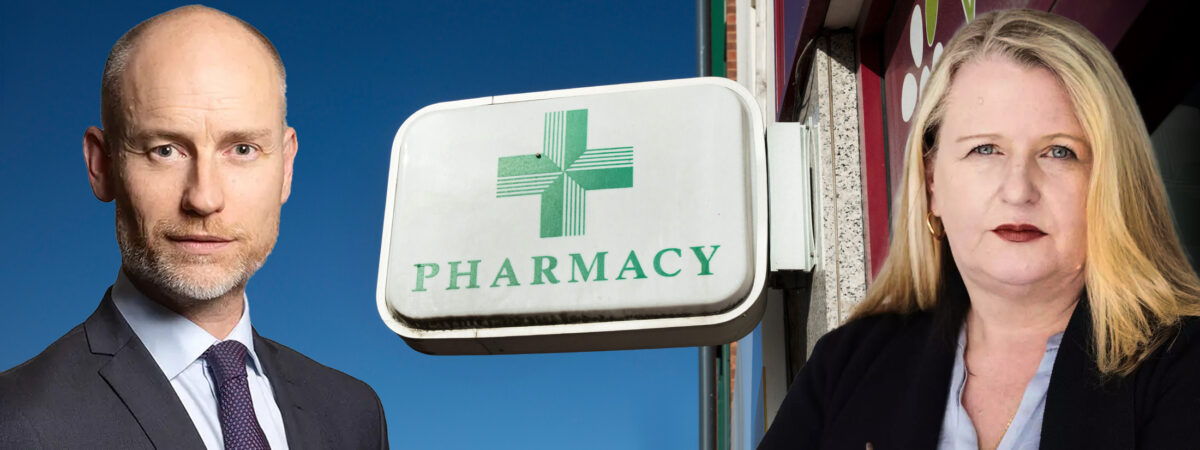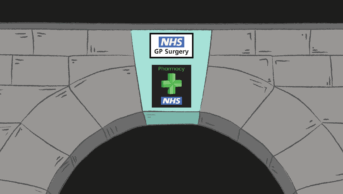With the announcement of a new contract for community pharmacy in England for 2024/2025 and 2025/2026, contractors can expect to see a 30% uplift in funding by 2026.
Under the contract, pharmacies will receive more than £3bn per year in funding, with an additional £215m for Pharmacy First, the pharmacy contraception service and hypertension case-finding service.
Community Pharmacy England (CPE) has called the final deal a “step-change for the sector” that shows a “vote of confidence in its potential from the new government”.
However, the announcement has come with some reservations. CPE’s statement added that the negotiators have “been clear to ministers that this is only a first step towards sustainability, and that more funding is needed”.
Similarly, the Pharmacists’ Defence Association also describes the funding as “significant”, but references the NHS-commissioned economic analysis of the pharmacy sector, published on 28 March 2025, which estimated that 47% of pharmacies are operating at a loss.
“The so-called ‘uplift’ [in funding] will be spent plugging these gaps rather than improving conditions for the workforce or ensuring fair remuneration for those on the frontlines of patient care,” it says.
The National Pharmacy Association (NPA) welcomed the new deal but warned that “because of a decade of neglect, it also falls a long way short of the NHS’s own estimates of the true cost of providing pharmacy services”.
Having previously recommended collective action by reducing service provision in response to the adverse economic conditions, the NPA says it will now reconsider its next move.
Service reduction
The action was first agreed by NPA members in November 2024, after the sector had been operating under an expired contract since March of that year.
Health ministers attributed the delay in contract negotiations to the general election in July 2024, with pharmacy bodies, including the NPA, CPE, Company Chemists’ Association and the Independent Pharmacies Association, repeatedly warning of the financial pressure this has put on contractors.
In August 2024, Janet Morrison, chief executive of CPE, said that, as a result, pharmacies were left with “no choice but to reduce the services that they can offer”.
In addition to the nine essential services that pharmacies are required to provide under the contract with NHS England, contractors can also choose to offer any of nine advanced services.
These advanced services include Pharmacy First, flu vaccination, contraception, hypertension case-finding, new medicine, smoking cessation, appliance use review, stoma appliance customisation and lateral flow device services.
Five of these services — Pharmacy First, the contraception service, hypertension case-finding service, smoking cessation service and the lateral flow device service — were launched under the previous five-year pharmacy contract, as part of the government’s aim for the sector to take on “a fundamental shift towards clinical service delivery”.
However, data obtained by The Pharmaceutical Journal on 9 February 2025, following a freedom of information (FOI) request to NHS England, show that out of 10,555 pharmacies in England, 1,539 (15%) pharmacies have stopped providing at least one of these new advanced services since 2021.
This includes pharmacies that later — in many cases, several months later — re-registered for services and pharmacies that have since closed.
The single driver of pharmacies not being able to use their expertise to provide care is all the unsustainable pressures due to chronic underfunding
Ade Williams, superintendent pharmacist at Bedminster Pharmacy, Bristol
The data cover four of the new advanced services for which NHS England said they held information: Pharmacy First, the pharmacy contraception service, hypertension case-finding service and lateral flow device service.
NHS England did not provide deregistration data for the smoking cessation service.
However, in March 2025, The Pharmaceutical Journal revealed that although 4,721 pharmacy contractors had signed up for the service, only 4% provided consultations to patients, enabling them to claim payments between July and September 2024.
Ade Williams, superintendent pharmacist at Bedminster Pharmacy, Bristol, says each pharmacy will have its “unique reasons” for withdrawing from a service.
“The single driver of pharmacies not being able to use their expertise to provide care that improves the health and wellbeing of their local population, is all the unsustainable pressures and daily jeopardy due to chronic underfunding and a dispensing reimbursement model now no longer fit for purpose,” he adds.
Expanded advanced services
Delivering a wide array of advanced services will be all the more crucial under the new contract as ‘bundling requirements’ come into effect from June 2025.
To receive the monthly Pharmacy First payment from June 2025, in addition to meeting a monthly consultation target, pharmacies must be registered to provide the pharmacy contraception and hypertension case-finding services. From October 2025, they must also deliver at least one ambulatory blood pressure reading per month and, from March 2026, they must deliver a specific number of contraception consultations per month, which is yet to be agreed by CPE and the government.
Other changes to services include the addition of antidepressants to the new medicine services and the ability to supply emergency hormonal contraception (EHC) through the pharmacy contraception service from October 2025.
Tase Oputu, chair of the Royal Pharmaceutical Society (RPS) English Pharmacy Board, says the inclusion of EHC will help to address health inequalities.
“The RPS has long advocated for the provision of free emergency contraception through community pharmacies in England to align with counterparts in Scotland and Wales and is pleased this will now become a reality,” she says.
“Reducing disparities in access will lead to better health outcomes, empower women with greater choice and help reduce health inequalities.”
This is echoed by the Faculty of Sexual and Reproductive Healthcare (FSRH). “For too long, too many women have struggled to get access to emergency contraception just because they don’t live in the right postcode,” says Janet Barter, president of FSRH.
“By making it uniformly available at community pharmacies, we’ll be removing the cost, stigma and access issues that have been a real barrier for women.”
Health inequalities
However, the data provided to The Pharmaceutical Journal by NHS England show that pharmacies located in deprived areas were more likely to deregister from offering an advanced service under the previous contract.
Of 1,539 deregistrations, some 491 — one-third — occurred in the 20% most deprived areas of England, according to the Index of Multiple Deprivation (see Figure), while 12% of deregistrations (183) occurred in the 20% least deprived areas.
The loss of these advanced services in deprived areas risks further exacerbating health inequalities
Spokesperson for the Patients Association
A spokesperson for the Patients Association says the trend “is deeply concerning”.
“Patients in these communities often face the greatest barriers to healthcare due to both social and structural determinants of health.”
“Local pharmacies play a vital role in bridging these gaps by providing accessible, frontline health services. The loss of these advanced services in deprived areas risks further exacerbating health inequalities and limiting essential care for those who need it most,” the spokesperson says.
William Pett, head of policy and public affairs at Healthwatch England, adds that “a reduction in pharmacies offering services such as Pharmacy First — especially in the poorest communities — is concerning”.
“People in deprived areas have already been disproportionally affected by pharmacy closures, which means they need to travel further away to get the medication and care they need,” he says.
Pharmacy First had the highest proportion of deregistrations under the previous contract at 48% (n=759), while the pharmacy contraception service had the second highest proportion at 30% (n=474). This is compared with 177 withdrawals from the hypertension case-finding service and 165 from the lateral flow device service.
Reena Barai, superintendent pharmacist at SG Barai Pharmacy in Sutton, Surrey, says that while the figures are disappointing, they are not surprising.
“In order to carry out services like Pharmacy First and the contraception service, you need to have ‘headspace’. You need time to train your team, market the service and deliver it in a professional manner, alongside an ever-demanding day job. This is extremely difficult to achieve, in reality,” she says.
However, Barai adds that the new pharmacy contract shows that “the powers that be have recognised this to some extent”.
“New adjusted criteria to trigger threshold payments for funding may allow more pharmacies to continue to offer these services or re-consider them if they have withdrawn from offering them,” she says.
“The payment for some of these services will see an uplift — a much-needed increase that takes into account the time and expertise that it takes to deliver these consultations, which will be welcome news to pharmacy owners.”
The thresholds for the Pharmacy First monthly payment have been a major concern among pharmacists and pharmacy bodies since the service began in January 2024.
They have increased incrementally, from a minimum of 1 consultation in February 2024 to 30 consultations in March 2025, with CPE and the government having to intervene to reduce the thresholds for some months.
However, board papers published by CPE in February 2025 said that “despite … reductions, the minimum threshold has continued to be challenging for many pharmacy owners to meet”.
We’re working to turn around a decade of underfunding and neglect that has left the sector on the brink of collapse
Stephen Kinnock, pharmacy minister
Under the new contract, there will be a ‘banded approach’ to the monthly payments. Beginning in June 2025, pharmacies will receive £500 if they provide 20–29 consultations in a month, or £1,000 if they deliver 30 or more.
“This … will help address the concerns from pharmacy owners who have not been able to achieve the 30 clinical pathway consultations monthly target over the last few months,” CPE says.
Consultation fees for the services have also been updated, as has the Pharmacy Quality Scheme (PQS) (see Box). For Pharmacy First, the consultation fee will rise from £15 to £17 per consultation.
Pharmacies will receive £25 for initiation or repeat supply of contraception under the pharmacy contraception service and £20 plus the cost of EHC supplied to a patient.
Pharmacy minister Stephen Kinnock describes the new funding for pharmacy as a “package of record investment and reform [that] is a vital first step to getting community pharmacies back on their feet and fit for the future”.
“We’re working to turn around a decade of underfunding and neglect that has left the sector on the brink of collapse,” he adds.
As CPE said, the funding is the “first step” in addressing the issues pharmacy faces, but whether it can bring pharmacies back from the brink and aid in the provision of advanced services remains to be seen.
Box: Pharmacy Quality Scheme 2025/2026
The new pharmacy contract includes an updated Pharmacy Quality Scheme (PQS) for 2025/2026, worth £30m. The scheme, which is an optional part of the ‘Community pharmacy contractual framework’, has been reduced in 2025. It contains some of the same elements as the previous scheme, with some new additions.
To qualify for PQS payments, pharmacies/pharmacy professionals must:
- Be registered to provide Pharmacy First and the pharmacy contraception service (new for 2025/2026);
- Develop or update a palliative and end-of-life care action plan and, if they stock the 16 palliative and end-of-life care medicines, update their directory of services profile to confirm this;
- Complete online training on consulting with people with mental health conditions to support introduction of depression to the new medicine service (new for 2025/2026);
- Meet respiratory targets for children aged 5–15 years;
- Complete online training on emergency hormonal contraception (EHC) to support introduction of EHC to the pharmacy contraception service (new for 2025/2026);
- Complete a national clinical audit on antimicrobial stewardship within the Pharmacy First service (new for 2025/2026);
- Complete online training in recognising sepsis (new for 2025/2026);
- Have undertaken a DBS check within the past three years (new for 2025/2026).



